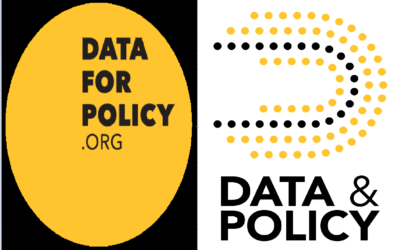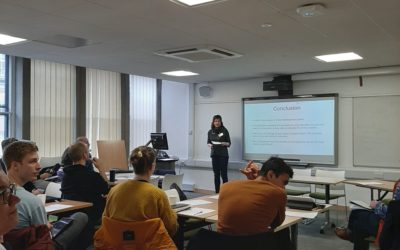Themes
ARTIFICIAL INTELLIGENCE (AI)
AI technologies provide computers with the ability to make decisions and learn without explicit programming. AI has already been observed with respect to intelligent personal assistants, and autonomous vehicles. Concerning public services, AI technologies are envisioned in many areas such as, comprehensive digital government services, providing intelligent virtual assistants, automating payments from and to citizens and gathering public opinion to drive policy.
BLOCKCHAIN TECHNOLOGIES
The technological elements of Blockchain, originally conceived for Bitcoin, are recognised as having far-reaching potential for government. Core Technologies are i. Distributed Ledger Technology (DLT) — a decentralized database of transactions secured by cryptographic sealing and, ii. Smart Contracts — rules, which attempt to codify transactions such that the records managed by the distributed ledger are authoritative with respect to the underlying legal agreements they represent.
INTERNET OF THINGS (IoT)
The IoT provides a unique opportunity to interconnect and dynamically manage public infrastructure. Any device with an on/off switch will have an identifier, communicate and be managed by ‘intelligent’ software. ‘Smart Cities’ are envisioned, where informatics and technologies are used to improve the efficiency of services. ICT will enable officials to interact directly with the community and city infrastructure, monitoring how the city is evolving in real time.
BIG DATA
Government collects huge volumes of data and thus has major opportunities for so-called big data (analytics). In general, big data provides the opportunity of examining large and varied data sets to uncover hidden patterns, unknown correlations, customer preferences, etc. Big data encompass a mix of structured, semi-structured and unstructured data gathered formally through interactions with citizens, social media content, phone call data and records, data captured by sensors connected to the Internet-of-things and so on.
PREDICTIVE & BEHAVIOURAL ANALYTICS
A subset of Big Data is Behavioural/Predictive analytics. These focus on providing insight into the actions of people, uncovering hidden patterns and unknown correlations, helping to make informed decisions. Behavioural Analytics centres on understanding how consumers act and are likely to act in the future. Predictive Analytics extracts information from historical and real-time datasets to determine patterns and predict future outcomes.
Latest News
Hiring: Research Assistant/Research Fellow in Data Science for Governance and Public Policy
Hiring: Research Assistant/Research Fellow in Data Science for Governance and Public Policy We are interested in building a collaborative team to lead research in this emerging field whilst also supporting the coordination and management of our two main projects –...
read moreSeminar: Translating Algorithm Ethics into Engineering Practice (UCL Digital Ethics Forum)
Translating Algorithm Ethics into Engineering Practice (UCL Digital Ethics Forum). The Digital Ethics Forum held its fifth workshop at the UCL Centre for Artificial Intelligence (4th February). Titled Translating Algorithm Ethics into Engineering Practice, the...
read moreWorkshop on “Location Data Technologies and Their Societal Implications” held at UCL (Jan 10th 2020).
Location Data Technologies and Their Societal Implications - UCL Digital Ethics Forum The third in the series of UCL Digital Ethics Forum Workshops was held in the Institute of Education (UCL), January 10th. Hosted by, Mirco Musolesi (UCL Geography) and Didem Ozkul...
read more


